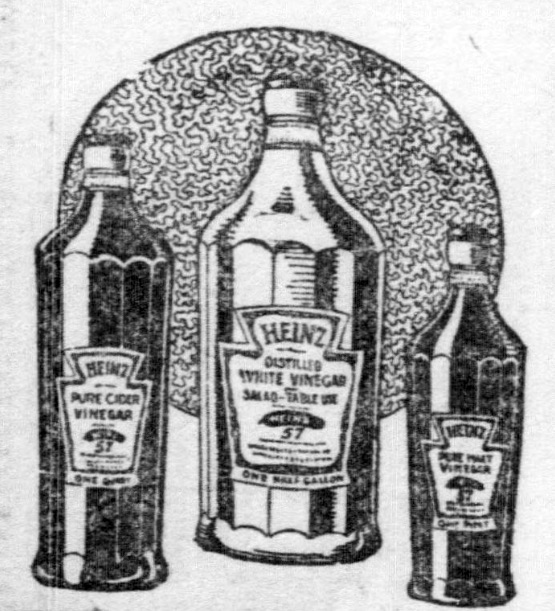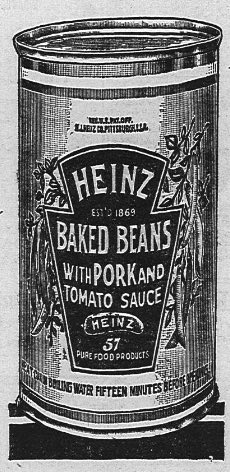
We know Heinz as the ketchup brand, but the originator of the Heinz brand was actually called the Pickle King. When he was a boy, he sold his mother’s jars of pickles from for to door. He turned his mother’s pickles into a large corporation.

Pickled Millions From Pickles
There is a sermon in a pickle.
Contemplate the name of “Heinz.” Names suggest mental pictures. The intelligent reader naturally associates the name of “Heinz” with pickles — 57 varieties of pickles, to be precise.
The mental picture suggested by “Heinz” is of a big, jolly German, who is an earnest trencherman. The picture is wrong.
H.J. Heinz, the Pickle King, when in an animated mood, bears a startling resemblance of Foxy Granda of the comic supplement.
Heinz became the Pickle King because, when young, he was able to see the importance of little things. He did not despise the pickle. His mother made good pickles, better pickles than anybody else could make. The Heinzes were poor. Young Heinz peddled his mother’s excellent pickles in jars from door to door. And so, of course, he became the Pickle King.
The other night Heinz made a speech at a banquet. The secret of success in business, he said, was “doing common things uncommonly well.”
Heinz is a man of tremendous energy. He has many interests. He is religious and takes an active part in Sunday school work.
While he wrestles with Sunday school problems, he does not fail to keep an eye on the pickle market.
Heinz is a bit of a philosopher, as well as a business man.
“Business in America,” he says, “is just recovering from a big drunk. American business men are in the position of men who, when they get drunk, go to jail for disorderly conduct. Some go to the hospital to recover from delirium tremens. And some merely have a headache and a bad conscience next morning.

“At the beginning of the 20th century we entered upon a period of business excitement which amounted to intoxication. Under the stimulus of money-getting, we achieved great things. Drunk with success, we reached out for greater and greater rewards.
“We went too fast. The inevitable reaction set in. We have a headache, but we are sane and sober once more.
“The remedy is a better understanding between employers and employees. It is,” he says, “the employer’s duty to know his men and to take a personal, human interest in their welfare and the welfare of their families.”
Corporations heartless? Not necessarily.
“My own business is a corporation,” says the Pickle King, “but it is not heartless. And in all the 42 years I have been in business I have not had a strike or even the resemblance of a strike.”
Source: The Day Book (Chicago, Illinois newspaper). May 23, 1912

